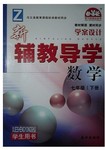
The house I grew up _______ when I was in Australia has been taken down and replaced by an office building.
A. in which B. in it C. in D. in that
 一课四练系列答案
一课四练系列答案 黄冈小状元满分冲刺微测验系列答案
黄冈小状元满分冲刺微测验系列答案 新辅教导学系列答案
新辅教导学系列答案 阳光同学一线名师全优好卷系列答案
阳光同学一线名师全优好卷系列答案科目:高中英语 来源:2014-2015学年安徽马鞍山红星中学高二10月月考英语试卷(解析版) 题型:单项填空
Studies shows that people are more __________ to suffer from back problems if they always sit before computer screens for long hours.
A. likely B. possible C. probable D. sure
查看答案和解析>>
科目:高中英语 来源:2014-2015学年山东日照市高三12月校际联合检测英语试卷(解析版) 题型:其他题
A man looking at his smartphone while walking across a railway crossing in Nanjing 1. (have)a close knock on Oct 22.He was so2. (absorb) in his smartphone that he didn’t see a train approaching until it brushed past him, 3. (throw)him to the ground.This should serve 4. a warning that people should be aware of their surroundings.especially 5. crossing roads.
6. (1ucky),the man survived a brush with death,but the incident forced the driver 7. (stop)the train.An l8-minute delay followed the incident,8. led to a break in the running of other trains on the route.
Smartphone 9. (addict)has spread like an infectious disease.It’s evident that it will do great harm to society.What’s even 10. (bad),some addicts become impatient with relatives and friends.
Some people blame the smartphone for the tragedy,yet in tact people’s weakening self-control and self-discipline are to blame.
查看答案和解析>>
科目:高中英语 来源:2014-2015学年福建武平第一中学高三上12月月考英语试卷(解析版) 题型:其他题
阅读下列短文,根据以下提示:1)汉语提示,2)首字母提示,3)语境提示,在每个空格内填入一个适当的英语单词,并将该词完整地写在右边相对应的横线上。所填单词要求意义准确,拼写正确。
As children, loving our parents is an important part of life.It is our parents who create us, 1._____ (抚养) us, make us who we are and keep a roof over our heads in all kinds of weather. Here are some ways to love our parents.
Firstly, tell them we love them every day. A gentle“I love you”will warm a coldest 2.h_______. Parents brought us into this world. 3. _____ them, we might still wander at an unknown corner of an unknown world. Then,show 4._____ (尊敬)to them and don’t get angry easily because anger helps5._____ us nor our parents. Instead, keep6. c _____ and sometimes share our feelings with them. Besides, obey their requests, 7. _____ will make our attitudes better. What’s more, understand that parents should be8. _____(原谅) when they make mistakes. We should also keep 9.c________ with them as much as possible. Learn from them by listening to their stories as parents are the resources of our growth and even our 10. t_______ in one way or another.
查看答案和解析>>
科目:高中英语 来源:2014-2015学年福建武平第一中学高三上12月月考英语试卷(解析版) 题型:单项填空
One’s life has value _______ one brings value to the life of others.
A. so that B. no matter how
C. except that D. as long as
查看答案和解析>>
科目:高中英语 来源:2014-2015学年福建武平第一中学高三上12月月考英语试卷(解析版) 题型:单项填空
Take care! _______ to frequent smog does great harm to your health.
A. Exposing B. To expose
C. Exposed D. Being exposed
查看答案和解析>>
科目:高中英语 来源:2014-2015学年浙江江山实验中学高一11月月考英语试卷(解析版) 题型:信息匹配
The people below all want to book a day out by train. After the description of these people, there is information about six days A---F. Decide which day would be most suitable for the person mentioned in questions 1---5 and then mark the correct letter (A---F) on your answer sheet. There is one extra paragraph about one day which you do not need to use.
1.Mrs. Williams and her friend enjoy visiting old buildings especially in large city centers, but they are not free on Saturday as they have to work.
2.Jean Paul loves the countryside and is keen on taking photographs, so he is looking for a trip which will give him both possibilities.
3.Jancis and Tony would like a trip on a river that does not leave London before nine o’clock as they hate getting up early like most young people.
4.Sarah and her brother love eating on a train and want a trip that includes three meals. They are on holiday in June and would also like to visit a museum.
5.Tim is looking for a Saturday trip but he must be back in London by 21:00 so that he can catch the last bus home. He is interested in boats and sailing.
A: SUNDAY 1 JUNE
Train leaves London at 7:00 and breakfast is served as we head north. Arrive Durham after a light lunch and visit this city full of history with its famous castle and cathedral. Travel by coach to the open-air Museum of Northern Life just outside Durham. Leave Durham Station for the journey home arriving in London after dinner on board at 22:00.
B: SUNDAY 23 JUNE
Try a Sunday luxury day out! Train leaves London about 9:00 and breakfast is served on the journey. Transfer to a comfortable coach at Repford Station which takes you straight to the famous Shockton House built in the heart of the city in the sixteenth century. Arrive back in London at 21:00.
C: SATURDAY 31 AUGUST
New route for 1997. Train leaves London about 8:30. Breakfast and a light lunch will be served on the journey and the train will run slowly over the most beautiful parts of the route. Leave the train in the Lake District and take the opportunity to photograph the countryside. Dinner will be served during the journey back, arriving in London at 21:30.
D: SUNDAY 9 JUNE
This trip is especially for photographers. Leaving London at 9:30 for the Museum of Photography in the west country. Lunch is served on arrival at the Museum and after a short talk by the Museum Director you are free to enjoy the exhibitions in the afternoon. Train arrives back in London at 20:00.
E: SATURDAY 8 JUNE
Train leaves London about 9:15 with breakfast served on the way. At Chepstow we transfer to coaches and drive to the lovely Wye Valley where there will be a boat waiting to take you on a river trip. We will stop on the way for a short walk. Dinner will be served on the return trip, arriving back in London at 21:30.
F: SATURDAY 22 JUNE
A day trip to the coast! Train leaves London at 8:00 and breakfast is served before you arrive at Poole Harbour. There you have the rest of the day to watch the ferries or take a fishing trip. Supper is served on the return journey arriving back in London at 20:30.
查看答案和解析>>
科目:高中英语 来源:2014-2015学年江西南昌市三校高一1月联考英语试卷(解析版) 题型:阅读理解
Societies all over the world name places in similar ways. Quite often there is no official naming ceremony(仪式) but places tend to be called names as points of reference by people. Then an organized body steps in and gives the place a name. Frequently it happens that a place has two names: one is named by the people and the other by the government. As in many areas, old habits die hard, and the place continues to be called by its unofficial name long after the meaning is lost.
Many roads and places in Singapore (新加坡) are named in order that the pioneers will be remembered by future generations. Thus we have names such as Stamford Road(斯坦福路) and Raffles Place. This is in keeping with traditions in many countries--in both the West and the East.
Another way of naming places is naming them after other places. Perhaps they were named to promote friendships between the two places or it could be that the people who used to live there were originally from the places that the roads were named after. The mystery is clearer when we see some of the roads named in former British bases. If you step into Selector Airbase you will see Piccadilly Circus--obviously named by some homesick Royal Air Force personnel.
Some places were named after the activities that used to go on at those places. Bras Basah Road is an interesting example. “Bras Basah” means “wet rice” in Malay (马来语). Now why would anyone want to name a road “Wet Rice Road”? The reason is simple. During the pioneering days, wet rice was laid out to dry along this road.
A few roads in Singapore are named by their shapes. There is “Circular Road” for one. Other roads may have part of their names to describe their shapes, like “Paya Lebar Crescent”. This road is called a crescent (月牙) because it begins on the main road, makes a crescent and comes back to join the main road again.
1.We learn from Paragraph 1 that ________.
A. the government is usually the first to name a place
B. a ceremony will be held when a place is named
C. many places tend to have more than one name
D. people prefer the place names given by the government
2.What does the underlined phrase “die hard” in Paragraph 1 probably mean?
A. Change suddenly.
B. Change significantly.
C. Disappear very slowly.
D. Disappear mysteriously.
3.Which of the following places is named after a person?
A. Selector Airbase.
B. Raffles Place.
C. Piccadilly Circus.
D. Paya Lebar Crescent.
4.What can be inferred from the passage?
A. Young Singaporeans have forgotten the pioneers.
B. Some places in Singapore are named for military(军事) purposes.
C. The way Singaporeans name their places is unique.
D. Some place names in Singapore are the same as in Britain.
查看答案和解析>>
湖北省互联网违法和不良信息举报平台 | 网上有害信息举报专区 | 电信诈骗举报专区 | 涉历史虚无主义有害信息举报专区 | 涉企侵权举报专区
违法和不良信息举报电话:027-86699610 举报邮箱:58377363@163.com